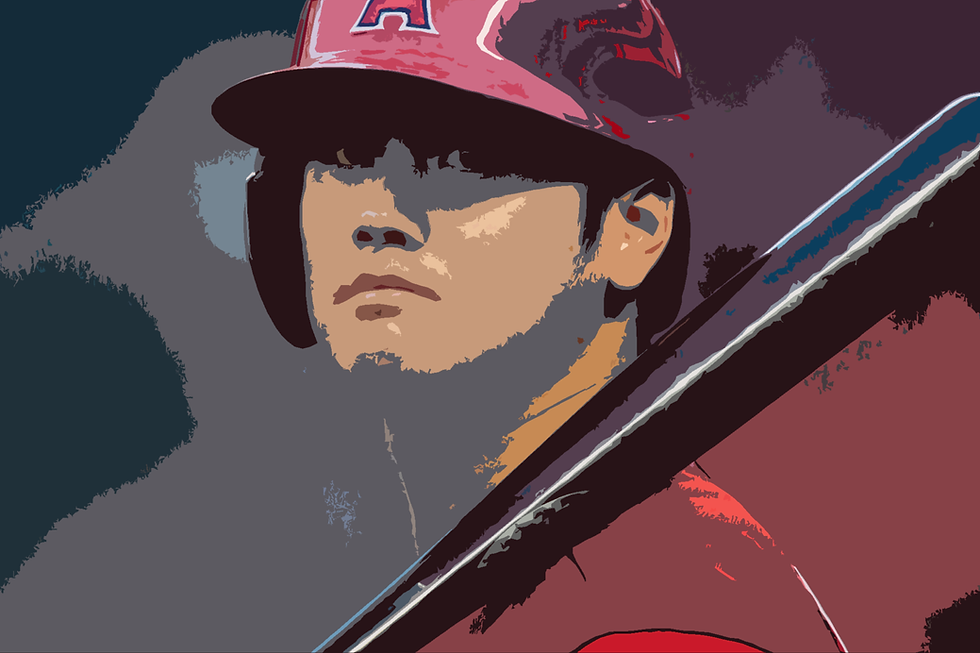So How Does This End?
- Charlie Teljeur

- Jan 8, 2024
- 3 min read

Shohei Ohtani is looking for a new home and, if you’re interested, it’ll only cost you roughly $650 Million USD (almost $900 Million Canadian) to sign him. Over his desired ten year contract, yes, that would work out to 65 Mil a year.
Ohtani, who is truly a once in a lifetime talent (he hits AND pitches at a world class level) was recently awarded the American League MVP trophy, as if the question of his awesomeness was even in doubt. I guess, for the sake of this argument and in comparison to the best players in the game, the guy is truly worth it. So, if anyone deserves this sort of money, Shohei Ohtani certainly does. My question is simply, how does this end?
This isn’t a complaint about anyone deserving that kind of money (although it is a tough justification, given the better worldly ways it could be spent), this is more about seeing where we’ll be at the end of this trail. In other words, how can this legitimately continue?
Make no mistake, Ohtani deserves no scorn for this. While we simply often scapegoat the player for the grotesque salary he commands, you can also be damned sure that the billionaire owners (thankfully!) will still make a profit regardless of the “burden” of these insane labour costs. No one is a loser in this high stakes game of poker, except, of course, YOUR wallet.
My point is about simple economics. You have a product, you have a cost to create that product, and you have people willing to pay for that product, and despite appearances, this cannot continue indefinitely. Something has to give.
For now, corporate money is filling that financial gap, but again, someday that too will end. It has to. The price of a product can only climb so high until you completely lose any customer willing to pay for it.
It is ludicrous to think that any of this - the supply, the demand - is infinite.
So, for now, we see every possible broadcast segment of every single professional professional sports telecast, tagged with some sort of corporate partnership. You may have noticed “highlights brought to you by..” and “the Toyota game summary”. That's how the scale is currently staying balanced.
Prime seats are no longer accessible to the average fan and if you’re lucky enough to even have a chance at a great seat, you’ll be hard-pressed to justify spending the money it will take to actually enjoy the game, given the supplemental costs involved.
A dwindling fan base (who able to regularly afford these costs) translates to higher season ticket prices overall which is now combined with a new fixation on selling costly new merchandise. Have you noticed the overabundance of alternate jerseys being hawked in every sport out there? This is not mere coincidence. Gone are the days when you bought a team jersey and wore it for 20 years. Teams simply can't afford for you to do that anymore.
While it’s true that fans aren’t actually forced to pay these costs, you also have to acknowledge that fewer and fewer people are able to meet the basic financial threshold - buying tickets and merchandise - for being a fan.
It only follows that, if you can’t afford to go to the games, and if you can’t afford to keep up with the plethora of special merchandise available, the sports leagues are left with fewer options which now includes putting the privilege of watching the game behind a paywall.
Games simply aren't free anymore, and given the massive financial commitment of being a fan, it’s no wonder major league baseball has a big problem.
None of this is news to anyone who’s been following pro sports in the last 25 years but the question again remains: How Does This End?
It ends - most obviously - when the honeypot is finally empty. When there's truly nothing left to give.
The business of pro sports is a lot like that last bit of toothpaste in the tube, where everybody is spending so much time trying to eke out the last bit in the tube and nobody has stopped to think about what will actually replace it.
So instead of developing truly sustainable models (a salary cap based around ticket prices, for example?) we’re left to await the inevitable reckoning.
You can't feel sorry for anybody. You can see this coming a mile away. At least we can.
So what will it all look like in the end? Who knows.
Truth is, we probably won’t even be watching. We simply can’t afford it.


Comments